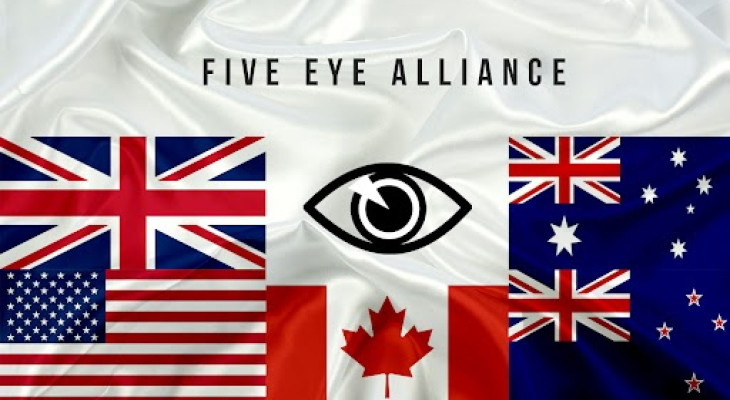Challenges Loom for the Five Eyes Alliance Amid US Foreign Policy Shifts
Current Affairs International IssuesPosted by newadmin on 2025-03-19 08:52:55 |
Share: Facebook | Twitter | Whatsapp | Linkedin Visits: 37

The Five Eyes intelligence alliance, formed in the aftermath of World War II, is facing unprecedented challenges due to shifts in US foreign policy under Donald Trump. Comprising the United States, United Kingdom, Canada, Australia, and New Zealand, the alliance has historically focused on Signals Intelligence and later expanded its scope to counterterrorism and cybersecurity. Recently, the alliance’s primary concern has shifted towards China's growing global influence.
The Five Eyes’ cooperation has been vital for global security, especially with concerns over Chinese tech giant Huawei's potential security risks in 5G networks. Additionally, the AUKUS pact has solidified military ties in the Indo-Pacific region, marking a new chapter in defense collaboration. However, internal tensions have emerged within the alliance, primarily due to Trump's aggressive trade policies and controversial statements, which have strained relations with key allies.
The appointment of Tulsi Gabbard as Director of National Intelligence has sparked further unease, with concerns about potential disruptions in intelligence-sharing practices. As US foreign policy leans more towards nationalism, allied nations fear the weakening of collective security efforts. The future of the Five Eyes alliance hinges on its ability to navigate these internal challenges, adapt to changing geopolitical dynamics, and maintain crucial intelligence-sharing cooperation among its member nations.
Search
Categories
Recent News
- SEBI Assistant Manager Prelims Results: Unlocking Career Opportunities
- Washington Post's International Shake-Up: A Tharoor's Tale
- Karnataka's Digital Leap: Revolutionizing Land Deals with Auto-Mutation
- Crypto Crash: Bitcoin's Rocky Road
- Pant's Patience: The Comeback Story Unfolds
- Life Sentence for Trump's Would-Be Assassin: Justice Served
- Trump's Response to Minneapolis Tragedy: A Delicate Balance
- Fuel Prices Fluctuate: How Much Will You Pay Today?
Popular News
- Navigating IPO Market Dynamics Amid Volatility and Regulatory Changes
- Massive Worldwide Microsoft Outage Disrupts Multiple Sectors
- Panjapur Bus Stand to Reshape TNSTC Routes
- తెలుగుదేశం పార్టీ - పేదరికాన్ని నిర్మూలించడంలో వాగ్దానం
- Universities Embrace Remote Learning Technologies Amidst Ongoing Pandemic